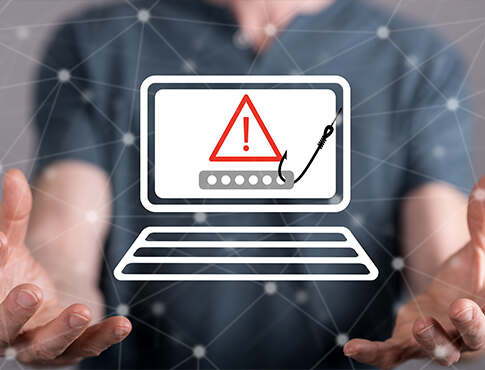

Protect yourself while shopping online.
As consumer activity online continues to increase, so too have the efforts by cybercriminals to target the unwary and uninformed. In the wake of the COVID-19 pandemic, many consumers have switched over to online shopping and continue to avoid in-person shopping. While internet scams and cyber criminals continue to increase, that doesn’t mean you should avoid online shopping altogether. If you take the proper precautions and follow important Internet security tips, you can safely shop online and feel secure while doing it.

The following tips are provided to help you stay safe while shopping online.
Secure your device
Make sure your device has the latest security updates installed. Check that your anti-virus and anti-spyware software are running properly and are receiving automatic updates from the vendor.
Check for updates
Upgrade your internet browser to the most recent version available. Apply the highest level of security available that still gives you the functionality you need.
Be wary of potential scams
If the online offer sounds too good to be true, it probably is. Cyber criminals will look to take advantage of the volume of online shoppers to temp users to fall prey to online scams.
use strong passwords
Create strong passwords for online accounts. Don’t use the same passwords for online shopping websites that you use for logging onto your bank, home or work computer.
do not use public connections
Don’t use public computers or public wireless connections for your online shopping. Public computers could potentially contain malicious software that steals your credit card information when you place your order.
Select merchants carefully
Limit your online shopping to merchants you know and trust.
Secure your transactions
Look for the “lock” icon on the browser’s status bar and be sure "https" appears in the website’s address bar before making an online purchase.
Make payments securely
Pay by credit card rather than debit card. If online criminals obtain your debit card information they have the potential to empty your bank account.
Keep a record
Keep a record of your online transactions and review your credit card and bank statements for unauthorized charges.
Do not email sensitive data
Never email credit card or other financial/sensitive information. Beware of emails requesting account or purchase information. Legitimate businesses don’t solicit information through email.

